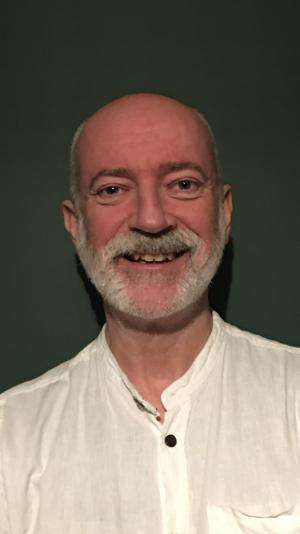BASW Blog: In praise of LGBT+ History month
As a gay man, this month I am celebrating LGBT+ History Month. As a social worker, next month I will celebrate World Social Work Day on 16th March with the common message ‘I am Because We Are’.
The two resonate with a common theme because I live today in a society where I have been able to decide to marry the man I love because of the pioneering stance taken by others.
When I was born, sexual behaviour between two men was illegal. What made my marriage possible was a change to the law and a change in societal attitudes and as we know from so many examples the latter does not always follow the former with any speed!
Change has been made possible because of the pioneering and heroic lives that make up LGBTQ+ history; lives that in many different ways have shown us the value of recognising, celebrating and upholding difference and diversity with equality and empowerment.
So let’s take a brief look at the history…
February is LGBT+ history month in the UK and has been since 2005, although its US roots go back to 1994. LGBT+ History Month aims to promote a positive understanding of the rights of people who identify as lesbian, gay, bisexual, trans or define their sexuality in a myriad of other ways.
The overall aim of LGBT+ History month is to promote equality and diversity for the benefit of the public.
Put a ‘Q’ in there as well and it reclaims a term once heavy with insult and slur but which is now brandished as a vibrant word of choice to celebrate the colourful diversity of difference and all things Queer.
So where does the ‘history’ bit come in? By celebrating the lived lives and achievements of people who are LGBTQ+ we can show a collective understanding and appreciation for what it means to live today with equality for each and every person.
By making, what was once invisible or obscured, now visible and celebrated, we can honour the lives of people who stood out and stood up for what they believed in. The message of LGBT+ history is a simple one: a desire to live in peace with others and at peace with oneself.
Those acclaimed people who tread the halls of LGBTQ+ history have earnt their right to be remembered. These are people who through their actions have shown us the value of humility, the power of collaboration, the achievements that come from determination and the warmth that comes from treating others with care and respect.
LGBT+ history month shines a light on these pioneers and champions of diversity and difference. I have spent each day this month thinking about what I know and what I don’t know about the lives of people who together construct LGBTQ+ history.
I knew about Mark Ashton (1960 – 1987), whose life was captured in the film Pride, as an activist who co-founded the Lesbian and Gays Support the Miners group in the 1980’s. I didn’t know about Roberta Elizabeth Marshall Cowell (1918 – 2011) who, apart from being a racing driver and second world war fighter pilot, was the first British trans woman to undergo sex reassignment surgery.
I knew about the powerful poetry of Maya Angelou (1928 – 2014) but I didn’t know how much of an LGBTQ+ ally she had been. I didn’t know about Edward Carpenter (1844-1929), but felt I should have done, for his utopian socialist beliefs, philosophical writings and role as a founding father of gay rights. For 28 days I’m pausing to think about those people whose past lives continue to touch the present. Some I know and some I am discovering, but all deserve a part in this annual celebration.
This reflection does give pause for thought though, it does make me think about the challenges we still have to overcome as a society.
For example, as a gay man how comfortable do I feel stepping out on my daily exercise walk hand in hand with my husband? How many television programmes and adverts do the children I have supported through work watch that feature people in a same sex relationship?
How many of us in our professional lives have sent out a clear message to trans people that all sexualities are respected? How informed and skilled can we each say we are when it comes to the diversity of the lived lives of all those different individuals that we might find ourselves supporting today or tomorrow?
If we don’t understand the message ‘I am Because We Are’ then we have not understood LGBTQ+ history or the histories of anyone who lives a different and diverse life. The point of LGBTQ+ history affects everyone because everyone in their own way is different; promote equality and diversity for the benefit of everyone.
With an emphasis on educating young people, Schools Out UK host LGBT+ History Month and more information and resources can be found at: https://lgbtplushistorymonth.co.uk/about/
